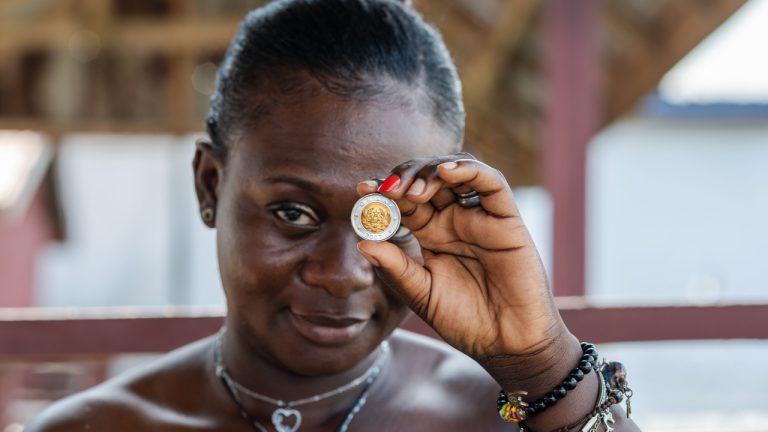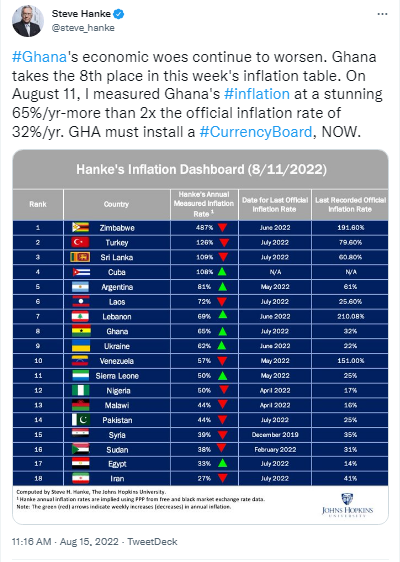
Ghana’s ongoing economic woes appeared to worsen in July after data from the country’s statistical agency, Ghana Statistical Service, suggested that the inflation rate is now nearly 31.7%. The nearly 2% increase in the country’s inflation rate comes at a time when the local currency is reported to have depreciated by as much as 30% since the start of the year.
Economist Recommends Installation of Currency Board
According to the latest data from Ghana Statistical Service (GSS), the West African nation’s year-on-year inflation rate for July rose to 31.7%. The latest inflation rate is nearly 2% higher than the 29.8% rate which was recorded in June, the data showed.
Confirmation of Ghana’s latest official inflation, which is said to be the highest in 19 years, coincided with a report suggesting the country’s currency, the cedi, has now depreciated by more than 30% since the beginning of the year. The currency’s depreciation has since prompted Steve Hanke — the Johns Hopkins economics professor who estimates Ghana’s real inflation rate to be two times higher — to call for the immediate installation of a currency board.

Ghana Wants More From the IMF
Meanwhile, another Bloomberg report has suggested that President Nana Akufo-Addo’s government is now seeking $3 billion from the International Monetary Fund (IMF). The figure is double the $1.5 billion the government initially sought when it announced its intention to borrow from the global lender again.
As previously reported by Bitcoin.com News, Ghana’s worsening economic situation and reports of street protests against the growing hardships had prompted Akufo-Addo’s government to reverse its decision not to seek a bailout from the IMF.
The Bloomberg report also suggested that the Ghanaian government is hoping an IMF bailout will help restore investor confidence in its economy. However, concerning the bailout talks between Ghana and the IMF, the report cited an unnamed source who said:
Since negotiations for the program are starting now, it’s too early to comment on the final form the program will take. The Extended Credit Facility for low-income countries is the Fund’s main tool for medium-term support for countries facing protracted balance of payments problems, similar to Ghana’s. The duration of such an arrangement is between three to four years, and extendable to five years.
The source, however, said the IMF board is going to have the final say on the amount of funding that Ghana is going to actually receive.
Register your email here to get a weekly update on African news sent to your inbox:
What are your thoughts on this story? Let us know what you think in the comments section below.





